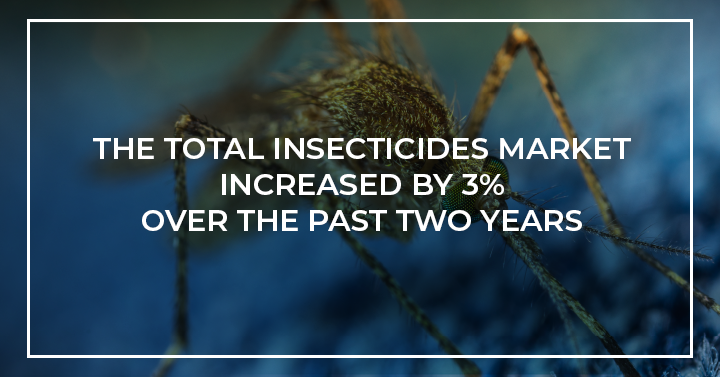The use of drones is expected to increase in the never-ending effort to control mosquitoes, according to new research by Kline.
The unmanned aerial vehicles allow for more direct targets of application and reduce potential exposure of chemicals to applicators. Currently, drones are mostly used for scouting missions and to photograph areas of potential water accumulation; they’re also useful in larvicide treatments. Kline forecasts a steady growth of almost 2.4% over the next five years overall; in fact, 50% of respondents said they planned to use drones in the near future. Meanwhile, 25% planned to increase their use of larvicides to control mosquitoes, and another 25% said they planned to use more traps and monitors. Just over 15% of respondents said they were looking at increasing their coverage area to provide more effective control.
While there are several mosquito-borne diseases targeted for control, the two most prominent in the United States are the West Nile and Zika viruses. Case numbers for both dramatically decreased in 2020, primarily due to the reduction of human activity due to COVID-19 lockdowns. Regardless, most abatement programs continued as planned in 2020. Overall, the total insecticides market increased by 3% over the past two years to reach a value of USD 90 million.
Continual control is important to keep mosquito populations low and prevent spreading to larger areas, even in times of low disease activity. The downside of this, however, is that many mosquito species have begun to develop some level of resistance toward common chemical ingredients used in excess over the years. The solution has been an increase in the use of alternative products, including biologically based ingredients that provide a more environmentally safe product and also low chances of resistance. Biologically based treatments have predominantly been used for larvicide and insect growth treatments, the most popular of which are derived from bacteria. Overall, in 2020, it is estimated that there are more than 80 different biological methods of mosquito control which are present in the United States.
For more information, refer to Kline’s recently published Mosquito Control: U.S. Market Analysis and Opportunities report.

